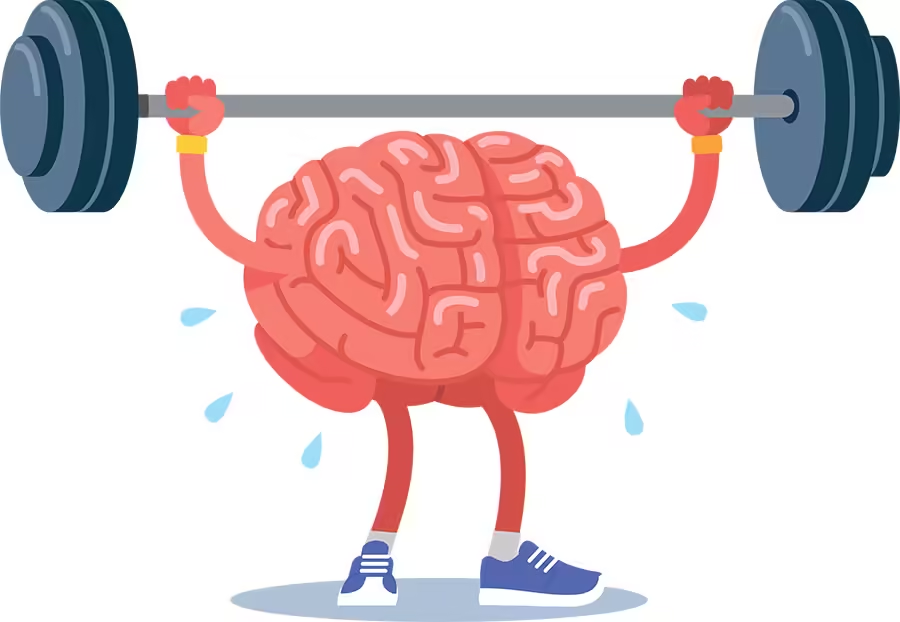Although physical advantages of exercise are well known especially for women its effect on brain function is equally great maintaining cognitive ability and mental wellness becomes much more critical as women get older examining the physiological and psychological advantages as well as practical ways to include physical activity into daily life this paper investigates how exercise affects brain health in women.
Exercise’s Relationship with Brain Function
It has become clear that exercise greatly influences brain function. Regular physical activity increases blood flow to the brain, stimulates the synthesis of neurotransmitters, and helps new brain cells to proliferate. These advantages are especially important for women negotiating several phases of life, including hormonal changes brought on by menstruation, pregnancy, and menopause.
1. Mood control and neurotransmitter synthesis
Exercise sets off endorphins serotonin and dopamine among other neurotransmitter release emotional well being and mood control depend on these substances in great part regular exercise can help women reduce more common depression and anxiety symptoms brought on by hormonal changes.
Released during physical exertion endorphins also known as “feel good” hormones can produce pleasure also referred to as the “runner’s high” stress and depression can be lessened with this natural mood enhancer.
Control of mood and cognitive processes depends on serotonin and dopamine, two neurotransmitters exercise raises their levels, therefore enhancing their mental clarity and emotional stability.
2. enhanced cognitive ability and blood flow
Exercise improves cardiovascular health which then increases blood flow to the brain more oxygen and nutrients delivered by increased cerebral blood flow to brain cells helps them to work as intended in memory attention and problem-solving.
Regular exercise has been linked in women to enhanced cognitive ability including faster information processing and greater memory recall. Particularly useful are activities raising the heart rate, such aerobic ones.
Engaging in physical activity could also help stop age-related cognitive deterioration studies indicate that consistent exercise can lower the risk of neurological disorders including alzheimer’s and dementia which are major issues for women approaching retirement.
3. Brain plasticity and neurogenesis
Exercise increases neurogenesis the process by which fresh neurons are created in the brain maintaining cognitive ability and resistance against neurological illnesses depend especially on this.
Regular physical activity has been found to boost the development of new neurons, especially in the hippocampal region of the brain engaged in memory and learning.
Exercise also supports brain plasticity that is the brain’s capacity for adaptation and reordering itself recovering from neurological injury and picking up fresh skills depend on this.
Women’s Hormonal Changes and Exercise
Throughout their life, women undergo a range of hormonal fluctuations including menopause, pregnancy, and puberty exercise can help one control these changes and preserve brain function.
Menstrual cycle and puberty
Variations in hormone levels throughout puberty and the menstrual cycle can influence cognitive ability and mood. Regular exercise supports general mental health and helps to steady these swings.
Exercise helps control hormones including oestrogen and progesterone, which can assist premenstrual discomfort and mood swings lessened.
Physical activity at these periods can improve cognitive ability and focus therefore offsetting any unfavorable impact of hormonal shifts.
2. Pregnancy and Afterpartum
Times of major hormonal and physical change are pregnancy and the postpartum period. Exercise both during and after pregnancy can help to enhance general well-being and brain function.
Pregnancy- Moderate exercise can lower gestational diabetes risk boost mood and improve cognitive ability
As women negotiate new motherhood, postpartum exercise can help them recover from childbirth, lessen symptoms of postpartum depression, and enhance cognitive health.
3. menopause
Menopause causes hormonal changes that could compromise mood and cognitive ability some of these effects can be lessened and general brain health promoted by exercise.
Regular physical activity can help control menopausal symptoms including hot flashes and mood swings, therefore promoting better mental health.
Exercise after menopause can also promote neurogenesis and brain plasticity, therefore lowering the risk of cognitive decline and neurodegenerative illnesses.
Exercises Good for Brain Function
When it comes to brain health, not all activity is designed equally various kinds of physical exercise have different advantages for mental health and cognitive ability.
1. Aerobic Workout
Particularly good for brain function are aerobic activities such swimming jogging and cycling these exercises raise blood flow to the brain and heart rate therefore encouraging the production of growth hormones and neurotransmitters.
Aerobic exercise has been demonstrated to enhance executive functions, memory and attention. It is also linked to lower risk of neurodegenerative disorders and cognitive impairment.
2. Strength Building Programmes
Strength training—including resistance activities and weightlifting—also promotes brain function. This kind of exercise improves general physical strength and endurance, which may help cognitive ability.
Strength training has been connected to enhanced cognitive performance including stronger executive functions and memory it might also assist lower the age related cognitive decline risk
3. Balances and Flexibility Exercises
By lowering stress and enhancing mental clarity flexibility and balancing activities as yoga and tai chi help to maintain brain function.
Benefits- These activities encourage mindfulness and relaxation which can help lower sadness and anxiety symptoms through their engagement of the body and the intellect they also enhance coordination and cognitive ability.
4. Activities for Mental Stimulation
Including mental stimulation into physical exercise helps to maximize cognitive advantages even more. Dancing or sophisticated sports are among the activities that challenge the brain while also involving the body and provide a mix of physical and cognitive advantages.
Benefits: Dancing, for instance, blends mental difficulties such memorizing patterns with aerobic exercise. This double participation can improve general brain condition and cognitive ability.
Designing an Exercise Program for Best Brain Function
Establishing a consistent and diverse exercise schedule helps one to fully enjoy the advantages of exercise on brain function here are some pointers for designing a workable workout:
1. Estimate reasonable objectives.
First, based on your present degree of fitness and health create reasonable exercise goals to support general brain function, mix aerobic, strength and flexibility workouts.
2. Add variation.
Add several kinds of workouts to keep your program interesting and challenging this diversity guarantees that you take care of many facets of physical and mental health in addition to avoiding boredom.
3. Form It a Habit.
Reaping the rewards of exercise depends on consistency along with muscle-strengthening exercises two or more days a week try to get at least 150 minutes of moderate-intensity aerobic exercise or 75 minutes of vigorous-intensity exercise per week.
4. Attend to Your Body.
See how your body reacts to several kinds of exercise should you feel uncomfortable or show symptoms of overtraining, modify your program to avoid damage and guarantee long term success
5. Ask for Assistance
To keep motivated and get advice on developing a workable exercise schedule think about working with a fitness professional or enrolling in a group exercise program furthermore improving adherence to your fitness program is social support.
Finally.
Whether your goal is to keep mental clarity, try to improve cognitive function, or you are experiencing hormonal changes, including consistent exercise into your life is a great way to support brain health. To fully appreciate the spectrum of cognitive and emotional advantages physical activity has to offer, embrace a diverse and regular exercise program.



